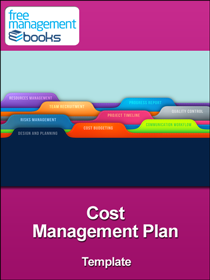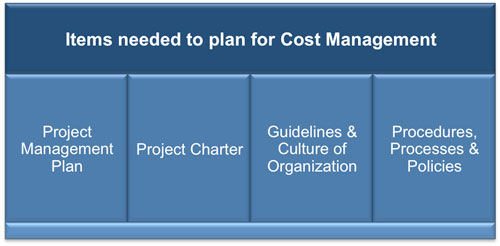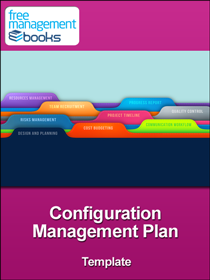
Cost Management Plan Templatee
This template enables you to produce a project cost management plan, one of the most important plans for a project. Without this plan costs can quickly become unmanageable and escalate out of control resulting in the project being prematurely closed.
Costs for a project must be planned and supported by its stakeholders and project sponsor. Then one of the project manger’s most important tasks is to monitor, control and manage the cost base throughout the life of the project to ensure that it delivers the end product within the approved budget.
Cost management is one of the most critical areas and responsibilities for a project manager. Poor management of project costs is often one of the key factors behind projects failing to attain their objectives. Without careful planning, monitoring and management costs can easily take on a life of their own and cause the project manager ongoing problems. A sound understanding of finance, even the most basic accounting skills, is necessary for any project manager.
Unfortunately such skills are often weak and as a result the area of cost management is problematic. Knowing how to produce a cost management plan that enables accurate forecasting and places proper controls on costs is essential for a project manager. It also provides clear instructions to others involved in the project team as to how costs will be managed.
The complexity of cost management increases in relation to the number of resource contractors used when outsourcing aspects of the project deliverables. This plan plays a critical role in addressing such issues because it defines and documents how costs are planned for, managed, controlled and expended during its life cycle. For example the activity cost estimates are a crucial input to several of the other management plans that use the activity resource requirement details in their creation.
The project plan and the project charter are two of the most significant inputs required in the production of a cost management plan. These documents along with those describing the project environment and organizational processes enable you to define the way costs need to be managed for a specific project.

This plan will require considerable input from experts who have much greater knowledge on budgeting for this type of project and they will be aware of different options available to the stakeholders with regard to how the project itself is funded as well as how to finance the resources required. It is important that the risks associated with each of the options being discussed are fully explored before any decision is made. Each option is also likely to impact the project schedule and this must be taken into account when putting together final costs for the project plan.
Meetings form a significant part of the process used to approve the final costs associated with any project. There are several two key individuals who must be involved in these proceedings they are the project manager and project sponsor. They integrate key personnel from the project team and stakeholders who add value to this part of the cost management process.
The majority of these processes occur in the planning stage. The fundamental basis of the cost management plan is the WBS (Work Breakdown Structure) where costs for each work package can be amalgamated so cost estimates can be calculated and included in the plan. This document also defines the key individuals with their responsibilities and authorities as they relate to the monitoring and managing of project costs.
The scope and schedule baselines are used to provide an estimation of the cost for each activity. Each cost estimate must have an explanation on how these figures have been calculated along with any assumptions or constraints. These are then discussed and a cost performance baseline is approved and agreed upon to determine the final project budget.

Throughout the whole project life cycle the way in which costs are monitored, controlled and reported on is defined in the final process of cost management. The result of this part of the process is to create the work performance measures by which overall success is judged. Format, regularity and quantitative measures for each cost report are described in this cost management plan this includes such things as control thresholds and definitions of performance measures (e.g. EVM).
This provides detailed figures on all the estimated costs of your project. As project manager you will outline how you will manage, report and control the projects budget so that it achieves the promised return on the organization’s investment. A common technique used in this area is Earned Value Management (EVM) where your forecast of expenditure is compared to the projects actual costs.
The cost plan defines how the costs on a project will be managed throughout the project’s lifecycle. It sets the format and standards by which the project costs are measured, reported and controlled. This plan identifies who is responsible for managing costs and who has the authority to approve changes to the project or its budget. It also specifies how cost performance is quantitatively measured and details report formats, frequency and to whom they are presented.
The Work Breakdown Structure (WBS) is the basis for the cost management plan because the costs are totaled or “rolled up” from the costs for the individual work packages in the WBS. You can check out the complete range of Project Management PDF eBooks free from this website.

